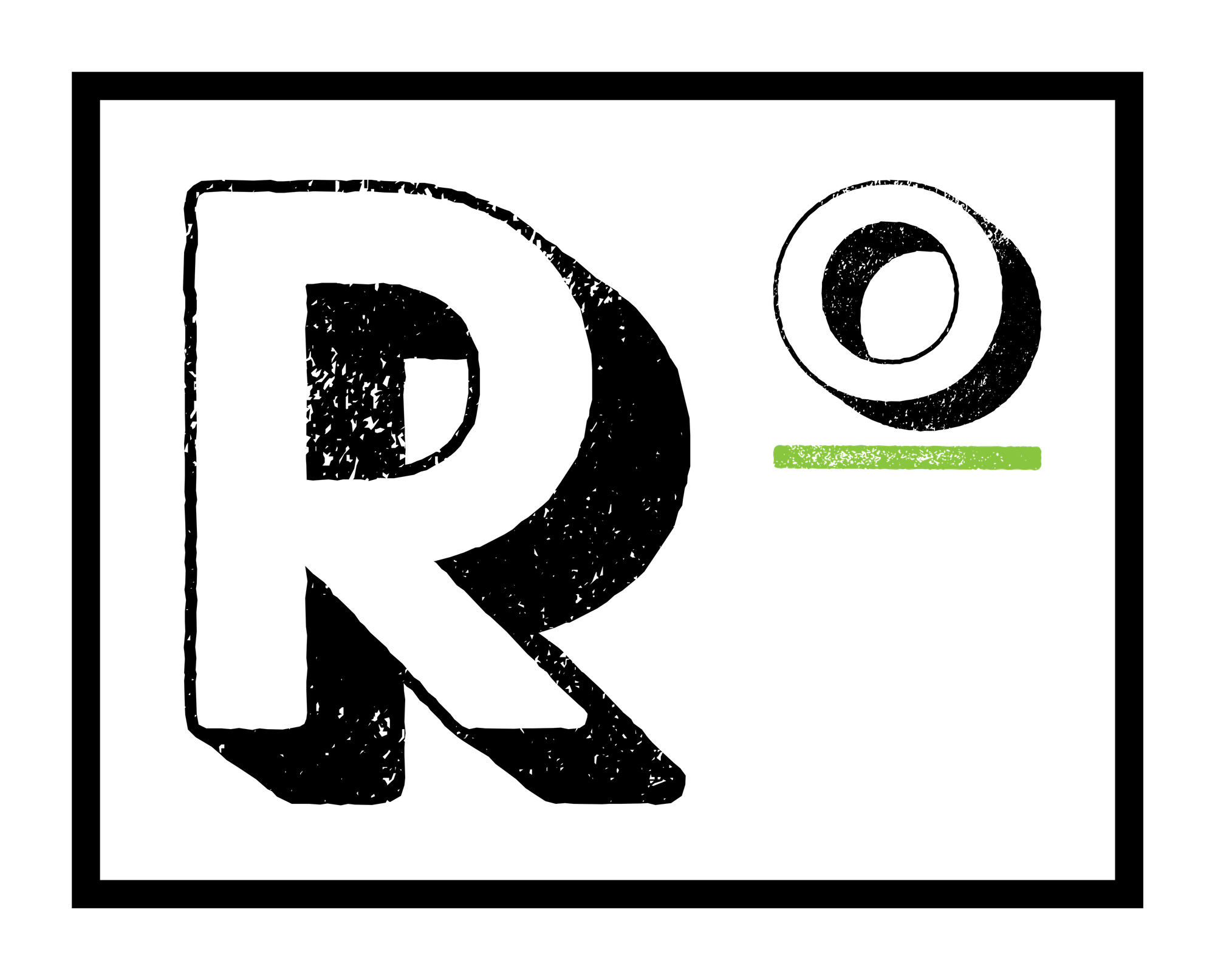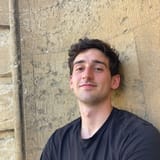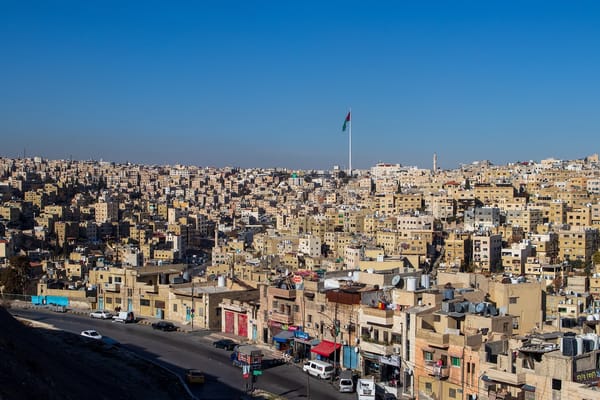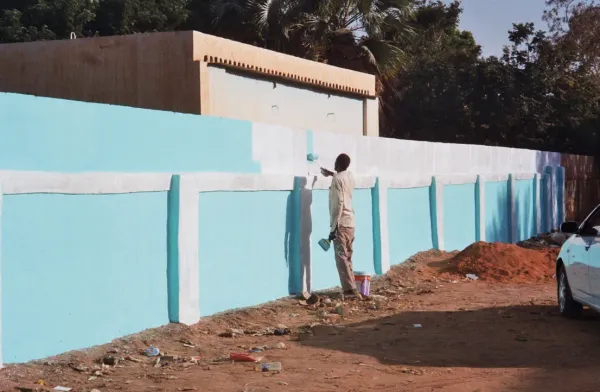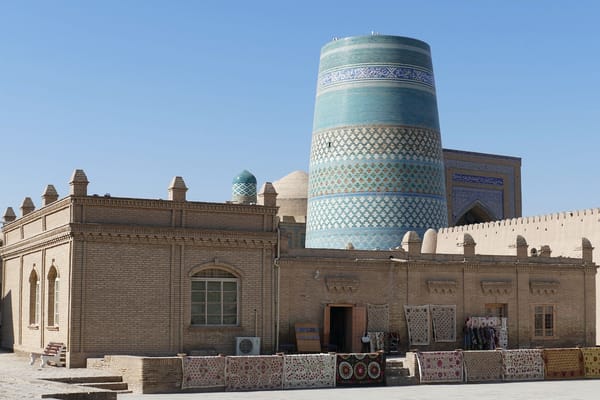Djamo: banking francophone Africa
By Hassan Bourgi


The Realistic Optimist is a newsletter covering the globalized startup scene.
It is read by people at Endeavor, Sturgeon Capital, Quona Capital and more. Its work has been published in Tech in Asia, TechCabal and Maddyness UK.

Biography
Hassan Bourgi is the co-founder of Djamo.
Djamo is a mobile challenger bank for francophone Africa. It offers money management services, saving functionalities, money transfers and a Visa card (among other things).
Djamo was the first startup from Ivory Coast to get into Y-Combinator. In 2022, the company raised a $14M Series A. Djamo operates in Ivory Coast and Senegal.
Before Djamo, Hassan founded Busportal, a Peru and Colombia-based online ticketing platform. He sold it to Naspers in 2019.
This interview was conducted and written by Timothy Motte.
Djamo has a subscription model. Why not take a cut of the flow of money?
We operate in francophone West Africa. It’s always more challenging for startups in our region to raise capital. We figured that showing financial traction, not just user traction, early on would increase our fundraising prospects. Due to low initial transaction volume, a subscription model made sense.
Today, we offer a freemium model. Users can use Djamo for free but pay if they want advanced features, such as free money transfers to any wallet or priority customer service. The option to bank for free is a revolution: virtually all regional banks charge their customers a “maintenance fee” regardless of their banking usage.
On top of recurring revenue, a subscription product can boost a product’s usage. If you pay an Amazon Prime subscription, you are incentivized to “use it” and buy stuff on Amazon. It’s the same with Djamo: if you have a premium account, you’re nudged to use our products more.
That increased use benefits us. Merchants pay us “interchange fees” whenever a client uses the Djamo card. In other words: merchants pay us to process payments coming from our cards.
In essence, we run a subscription model but we mostly make money off transaction flows. It’s just that we tap the merchant side rather than the user side.
Djamo’s flagship product is its Visa card. How does one launch a Visa card?
The process usually takes between 8 and 12 months. You need to get approval from your local central bank, find a local bank to sponsor you and complete Visa’s requirements. The process taught us to prepare for country launches way ahead of time.
Once you grow, investors want to see progress on the regulatory side, especially for fintech products. Traction doesn’t suffice anymore. Being compliant, more so in complicated geographies, is becoming a moat.
Compliance can’t be an afterthought. A founder should dedicate as much resources to their regulatory and compliance team than to their product team. It gets easier the more you do it, since national regulatory frameworks resemble each other. But it’s a muscle to train.
Why do you need to partner with local banks? Wouldn’t it be faster to go at it alone?
For two reasons.
First, partnering with banks allows us to launch into new markets much faster. In our region, only financial institutions can carry out cross-border transactions. If we wanted to offer that functionality, which we did, we needed partners with the right licenses. Today, we have two partner banks in Côte d’Ivoire and one in Senegal.
Second, we needed to issue “local” cards (ones connected to a local banking institution) because most merchants have fraud algorithms. These algorithms are way more inclined to accept local cards than foreign ones. By partnering with no bank or a foreign bank, you negatively impact your cards’ success rates. That’s terrible for customer experience, particularly if the card is your star product.
That being said, we are becoming more independent. We’ve applied for our own licenses. We’ve just gotten a brokerage license for the WAEMU region, enabling us to offer investment products. We also have a microfinance bank license application underway.
You’ve launched a B2B product. Why so early?
It’s more a B2B2C product. It helps businesses pay salaries digitally. The product only enables salary payments to Djamo accounts. It’s a way to start dabbling in B2B products, but also a nudge for people to create Djamo accounts.
Salary payments play into our larger vision: become the primary bank for Africa’s digital natives. For a bank to be your primary bank, it needs to receive your salary. So we’re highly focused on that. One of our B2C functionalities is the ability to generate an IBAN to receive salary payments, for example.
How are you different from Wave, or other mobile money products?
Mobile money is a fantastic product, but it’s limited for the user persona we’re serving.
Building on “traditional” money rails (bank settlement networks, card schemes) while partnering with banks allows us to offer more advanced products. These are suited to the middle and top of the financial pyramid. This segment of the population is looking for much more than local transfers and bill payments.
Talking about user persona: are you aiming to go upscale or downscale?
We don’t really think about that in those terms. Today, we target urbanites rather than the masses because the latter is well-served by mobile money. We don’t see any additional value we can bring them as of now.
If you simplify the banking pyramid, it can be divided in three: the banked, the underserved and the “bank ready”. We target this last segment: we estimate 25 million people in the region are in need of their first, proper bank account.
Djamo is a first-mover. What are common pushbacks to using your product?
It goes back to this “bank-ready” population we’re trying to serve. It can be tough to gauge how satisfied they are with their current options. We are offering something completely new, so there’s a lot of education to convince them that our products make sense.
Our pitch is that Djamo helps them improve their financial health and better plan their financial future. We’ve developed gamified, social saving options (“vaults”) for example.
What’s your product’s biggest friction that’s out of your hands?
We opted for an “open-loop” platform. This means some of our products’ features rely on third-parties. Evidently, any deficiencies those third-parties have reflects on our product. Most of the customer complaints we get come from third-party-related services.
We’ve had to change payment processors (which we need to process deposits/pay-outs) four times. It took us a while to get bank wires right. Another challenge is these third-parties’ pricing structures, which aren’t always adapted to our use case. This is changing, but we’ve had to subsidize a fair amount of services before pricing got recalibrated.
In some countries such as Nigeria, crypto gained allure as a way to counter currency depreciation. What’s your reading of crypto’s use case, in Djamo’s context?
Francophone West Africa is less affected by currency depreciation than Nigeria is. The Nigerian Naira is floated (the market decides its price), but the CFA Franc (used in francophone West Africa) is pegged to the Euro. This makes it more stable. The use case for “protecting” oneself from currency depreciation is less potent in our markets.
I think that most crypto use cases in Francophone Africa are investment ones. People want to invest in crypto to grow their wealth. But crypto’s volatility tends to transform investing into gambling. That’s not the type of behavior we want to foster on Djamo.
We think there’s better, safer ways to build wealth. Djamo Invest is a first step. It enables users to invest in mutual funds listed on local stock markets, with heavy exposure to safe, government bonds.
The transaction and saving data you’re harvesting is a gold mine for credit products. Any plans in that regard?
We haven’t done it yet. If we ever do credit, we’ll focus on use cases with quick feedback loops (short term loans, salary advances, etc…). That would dynamize our credit underwriting process and help us craft comprehensive credit scores.
We could then venture into longer-term products, such as salary backed loans and eventually mortgages. These would match our ethos of becoming people’s primary bank.
How do you think about geographical expansion?
It’s a no-brainer in our region. The countries we operate in have relatively small domestic markets and regularly flirt with political or economic crises. Geographical diversification is a great hedge against those national risks. We’ve expanded very quickly to Senegal, for example.
Is there a foreign, startup proxy you’re inspired by?
Obviously, Brazil’s Nubank comes to mind. They’ve nailed the neobank play in emerging markets. But I believe that a simplistic “Nubank copy-paste” wouldn’t work in Africa just yet.
LATAM is similar to the US: credit-cards are understood, widespread. Credit cards as a product are supremely powerful. Users can seamlessly borrow and spend. It’s a gold mine for the issuer, and it’s (in part) what made Nubank so successful.
This isn’t the case of personal loans for example, where the lender isn’t privy to the transaction data from that loan. It is limited in how it refines its underwriting process once the loan has been disbursed.
A small survey estimated that 58% of Latin Americans have credit cards. In Nigeria, Africa’s most populous country, the figure stands at around 1.6%. Any African neobank play has to start with contextually-relevant products, like someone’s first proper bank account.
Before Djamo, you founded and sold a bus ticketing startup in Peru. What lessons did you transfer over?
I learned that the world’s largest businesses are ones with which customers interact every day. This wasn’t the case with my bus ticketing startup, but it’s what I’m aiming for with Djamo.
My Latin America experience contained good lessons in scaling a startup in a “virgin” ecosystem lacking institutional support and investors. For Djamo, we were lucky to raise during the “hot” period, in 2021. That softened the blow of raising in a nascent ecosystem.
Government involvement is key at the early stages. Their policies are the cornerstones of what makes ecosystems tick, or not. Senegal is doing well with La Der, but Côte d’Ivoire’s ecosystem is still messy. Governments need initial successes to be woken up into action, and we hope Djamo will be one of those.
The Realistic Optimist’s work is provided for informational purposes only and should not be construed as legal, business, investment, or tax advice.

Read this related piece, also by the Realistic Optimist:
Côte d'Ivoire doesn't need to reinvent the wheel
Feb 29, 2024

The Realistic Optimist is a subscriber-funded publication. This allows for deep, nuanced and sponsor-free articles. About the author of this op-ed Leslie Ossete is the co-founder of M-Studio, an Abidjan-based venture studio launching startups serving francophone West Africa.
Read full story →

